- Home
- George R. R. Martin
The World of Ice & Fire
The World of Ice & Fire Read online
illustration credit 1
illustration credit 2
The World of Ice & Fire is a work of fiction. Names, characters, places, and incidents either are the product of the author’s imagination or are used fictitiously. Any resemblance to actual persons, living or dead, events, or locales is entirely coincidental.
Copyright © 2014 by George R. R. Martin
Images on 2.31, 3.67, 3.82, 5.92, 5.118, 5.122, 5.146, 5.157, and 6.182 are © Fantasy Flight Publishing, Inc.
All rights reserved.
Published in the United States by Bantam Books, an imprint of Random House, a division of Random House LLC, a Penguin Random House Company, New York.
BANTAM BOOKS and the HOUSE colophon are registered trademarks of Random House LLC.
LIBRARY OF CONGRESS CATALOGING-IN-PUBLICATION DATA
Martin, George R. R.
The World of Ice & Fire : the Untold History of Westeros and the Game of Thrones / George R.R. Martin, Elio Garcia, and Linda Antonsson.
pages cm — (A song of ice and fire)
Includes index.
ISBN 978-0-553-80544-4
eBook ISBN 978-0-345-53555-9
1. Martin, George R. R. Song of ice and fire. 2. Game of thrones (Television program)
I. Garcia, Elio. II. Antonsson, Linda. III. Title.
PS3563.A7239S5936 2014
813’.6—dc23 2014013093
www.bantamdell.com
Book design by Rosebud Eustace
v3.1
Storm’s End. (illustration credit 3)
Cover
Title Page
Copyright
A Note About this eBook
Preface
ANCIENT HISTORY
The Dawn Age
The Coming of the First Men
The Age of Heroes
The Long Night
The Rise of Valyria
Valyria’s Children
The Arrival of the Andals
Ten Thousand Ships
The Doom of Valyria
THE REIGN OF THE DRAGONS
The Conquest
THE TARGARYEN KINGS
Aegon I
Aenys I
Maegor I
Jaehaerys I
Viserys I
Aegon II
Aegon III
Daeron I
Baelor I
Viserys II
Aegon IV
Daeron II
Aerys I
Maekar I
Aegon V
Jaehaerys II
Aerys II
illustration credit 4
THE FALL OF THE DRAGONS
The Year of the False Spring
Robert’s Rebellion
The End
THE GLORIOUS REIGN
THE SEVEN KINGDOMS
The North
The Kings of Winter
The Mountain Clans
The Stoneborn of Skagos
The Crannogmen of the Neck
The Lords of Winterfell
Winterfell
The Wall and Beyond
The Night’s Watch
The Wildlings
The Riverlands
House Tully
Riverrun
The Vale
House Arryn
The Eyrie
The Iron Islands
Driftwood Crowns
The Iron Kings
The Black Blood
The Greyjoys of Pyke
The Red Kraken
The Old Way and the New
Pyke
The Westerlands
House Lannister Under the Dragons
Casterly Rock
The Reach
Garth Greenhand
The Gardener Kings
Andals in the Reach
Oldtown
House Tyrell
Highgarden
The Stormlands
The Coming of the First Men
House Durrandon
Andals in the Stormlands
House Baratheon
The Men of the Stormlands
Storm’s End
Dorne
The Breaking
Kingdoms of the First Men
The Andals Arrive
The Coming of the Rhoynar
Queer Customs of the South
Dorne Against the Dragons
Sunspear
illustration credit 5
BEYOND THE SUNSET KINGDOM
Other Lands
The Free Cities
Lorath
Norvos
Qohor
The Quarrelsome Daughters: Myr, Lys, and Tyrosh
Pentos
Volantis
Braavos
Beyond the Free Cities
The Summer Isles
Naath
The Basilisk Isles
Sothoryos
The Grasslands
The Shivering Sea
Ib
East of Ib
The Bones and Beyond
Yi Ti
The Plains of the Jogos Nhai
Leng
Asshai-by-the-Shadow
Afterword
Appendix: Targaryen Lineage
Appendix: Stark Lineage
Appendix: Lannister Lineage
Appendix: Reign of the Kings
Art Credits
A Note About this eBook
Double-tap or pinch to zoom in on images throughout the eBook.
illustration credit 6
IT IS SAID with truth that every building is constructed stone by stone, and the same may be said of knowledge, extracted and compiled by many learned men, each of whom builds upon the works of those who preceded him. What one of them does not know is known to another, and little remains truly unknown if one seeks far enough. Now I, Maester Yandel, take my turn as mason, carving what I know to place one more stone in the great bastion of knowledge that has been built over the centuries both within and without the confines of the Citadel—a bastion raised by countless hands that came before, and which will, no doubt, continue to rise with the aid of countless hands yet to come.
I was a foundling from my birth in the tenth year of the reign of the last Targaryen king, left on a morning in an empty stall in the Scribe’s Hearth, where acolytes practiced the art of letters for those who had need. The course of my life was set that day, when I was found by an acolyte who took me to the Seneschal of that year, Archmaester Edgerran. Edgerran, whose ring and rod and mask were silver, looked upon my squalling face and announced that I might prove of use. When first told this as a boy, I took it to mean he foresaw my destiny as a maester; only much later did I come to learn from Archmaester Ebrose that Edgerran was writing a treatise on the swaddling of infants and wished to test certain theories.
But inauspicious as that may seem, the result was that I was given to the care of servants and received the occasional attention of maesters. I was raised as a servant myself amongst the halls and chambers and libraries, but I was given the gift of letters by Archmaester Walgrave. Thus did I come to know and love the Citadel and the knights of the mind who guarded its precious wisdom. I desired nothing more than to become one of them—to read of far places and long-dead men, to gaze at the stars and measure the passing of the seasons.
And so I did. I forged the first link in my chain at three-and-ten, and other links followed. I completed my chain and took my oaths in the ninth year of the reign of King Robert, the First of His Name, and found myself blessed to continue at the Citadel, to serve the archmaesters and aid them in all that they did. It was a great honor, but my greatest desire was to create a work of mine own, a work that humble but lettered men might read—and read to their wives and c
hildren—so that they would learn of things both good and wicked, just and unjust, great and small, and grow wiser as I had grown wiser amidst the learning of the Citadel. And so I set myself to work once more at my forge, to make new and notable matter around the masterworks of the long-dead maesters who came before me. What follows herein sprang from that desire: a history of deeds gallant and wicked, peoples familiar and strange, and lands near and far.
Aegon the Conqueror upon Balerion, the Black Dread. (illustration credit 7)
Constructing the Wall. (illustration credit 8)
illustration credit 9
THE D AWN A GE
THERE ARE NONE who can say with certain knowledge when the world began, yet this has not stopped many maesters and learned men from seeking the answer. Is it forty thousand years old, as some hold, or perhaps a number as large as five hundred thousand—or even more? It is not written in any book that we know, for in the first age of the world, the Dawn Age, men were not lettered.
We can be certain that the world was far more primitive, however—a barbarous place of tribes living directly from the land with no knowledge of the working of metal or the taming of beasts. What little is known to us of those days is contained in the oldest of texts: the tales written down by the Andals, by the Valyrians, and by the Ghiscari, and even by those distant people of fabled Asshai. Yet however ancient those lettered races, they were not even children during the Dawn Age. So what truths their tales contain are difficult to find, like seeds among chaff.
What can most accurately be told about the Dawn Age? The eastern lands were awash with many peoples—uncivilized, as all the world was uncivilized, but numerous. But on Westeros, from the Lands of Always Winter to the shores of the Summer Sea, only two peoples existed: the children of the forest and the race of creatures known as the giants.
Of the giants in the Dawn Age, little and less can be said, for no one has gathered their tales, their legends, their histories. Men of the Watch say the wildlings have tales of the giants living uneasily alongside the children, ranging where they would and taking what they wanted. All the accounts claim that they were huge and powerful creatures, but simple. Reliable accounts from the rangers of the Night’s Watch, who were the last men to see the giants while they still lived, state that they were covered in a thick fur rather than simply being very large men as the nursery tales hold.
There is considerable evidence of burials among the giants, as recorded in Maester Kennet’s Passages of the Dead—a study of the barrow fields and graves and tombs of the North in his time of service at Winterfell, during the long reign of Cregan Stark. From bones that have been found in the North and sent to the Citadel, some maesters estimate that the largest of the giants could reach fourteen feet, though others say twelve feet is nearer the truth. The tales of long-dead rangers written down by maesters of the Watch all agree that the giants did not make homes or garments, and knew of no better tools or weapons than branches pulled from trees.
The archives of the Citadel contain a letter from Maester Aemon, sent in the early years of the reign of Aegon V, which reports on an account from a ranger named Redwyn, written in the days of King Dorren Stark. It recounts a journey to Lorn Point and the Frozen Shore, in which it is claimed that the ranger and his companions fought giants and traded with the children of the forest. Aemon’s letter claimed that he had found many such accounts in his examinations of the archives of the Watch at Castle Black, and considered them credible.
The giants had no kings and no lords, made no homes save in caverns or beneath tall trees, and they worked neither metal nor fields. They remained creatures of the Dawn Age even as the ages passed them by, men grew ever more numerous, and the forests were tamed and dwindled. Now the giants are gone even in the lands beyond the Wall, and the last reports of them are more than a hundred years old. And even those are dubious—tales that rangers of the Watch might tell over a warm fire.
The children of the forest were, in many ways, the opposites of the giants. As small as children but dark and beautiful, they lived in a manner we might call crude today, yet they were still less barbarous than the giants. They worked no metal, but they had great art in working obsidian (what the smallfolk call dragonglass, while the Valyrians knew it by a word meaning “frozen fire”) to make tools and weapons for hunting. They wove no cloths but were skilled in making garments of leaves and bark. They learned to make bows of weirwood and to construct flying snares of grass, and both of the sexes hunted with these.
Their song and music was said to be as beautiful as they were, but what they sang of is not remembered save in small fragments handed down from ancient days. Maester Childer’s Winter’s Kings, or the Legends and Lineages of the Starks of Winterfell contains a part of a ballad alleged to tell of the time Brandon the Builder sought the aid of the children while raising the Wall. He was taken to a secret place to meet with them, but could not at first understand their speech, which was described as sounding like the song of stones in a brook, or the wind through leaves, or the rain upon the water. The manner in which Brandon learned to comprehend the speech of the children is a tale in itself, and not worth repeating here. But it seems clear that their speech originated, or drew inspiration from, the sounds they heard every day.
The gods the children worshipped were the nameless ones that would one day become the gods of the First Men—the innumerable gods of the streams and forests and stones. It was the children who carved the weirwoods with faces, perhaps to give eyes to their gods so that they might watch their worshippers at their devotions. Others, with little evidence, claim that the greenseers—the wise men of the children—were able to see through the eyes of the carved weirwoods. The supposed proof is the fact that the First Men themselves believed this; it was their fear of the weirwoods spying upon them that drove them to cut down many of the carved trees and weirwood groves, to deny the children such an advantage. Yet the First Men were less learned than we are now, and credited things that their descendants today do not; consider Maester Yorrick’s Wed to the Sea, Being an Account of the History of White Harbor from Its Earliest Days, which recounts the practice of blood sacrifice to the old gods. Such sacrifices persisted as recently as five centuries ago, according to accounts from Maester Yorrick’s predecessors at White Harbor.
A giant. (illustration credit 10)
This is not to say that the greenseers did not know lost arts that belong to the higher mysteries, such as seeing events at a great distance or communicating across half a realm (as the Valyrians, who came long after them, did). But mayhaps some of the feats of the greenseers have more to do with foolish tales than truth. They could not change their forms into those of beasts, as some would have it, but it seems true that they were capable of communicating with animals in a way that we cannot now achieve; it is from this that legends of skinchangers, or beastlings, arose.
In truth, the legends of the skinchangers are many, but the most common—brought from beyond the Wall by men of the Night’s Watch, and recorded at the Wall by septons and maesters of centuries past—hold that the skinchangers not only communicated with beasts, but could control them by having their spirits mingle. Even among the wildlings, these skinchangers were feared as unnatural men who could call on animals as allies. Some tales speak of skinchangers losing themselves in their beasts, and others say that the animals could speak with a human voice when a skinchanger controlled them. But all the tales agree that the most common skinchangers were men who controlled wolves—even direwolves—and these had a special name among the wildlings: wargs.
Legend further holds that the greenseers could also delve into the past and see far into the future. But as all our learning has shown us, the higher mysteries that claim this power also claim that their visions of the things to come are unclear and often misleading—a useful thing to say when seeking to fool the unwary with fortune-telling. Though the children had arts of their own, the truth must always be separated from superstition, and knowledge must
be tested and made sure. The higher mysteries, the arts of magic, were and are beyond the boundaries of our mortal ability to examine.
Though considered disreputable in this, our present day, a fragment of Septon Barth’s Unnatural History has proved a source of controversy in the halls of the Citadel. Claiming to have consulted with texts said to be preserved at Castle Black, Septon Barth put forth that the children of the forest could speak with ravens and could make them repeat their words. According to Barth, this higher mystery was taught to the First Men by the children so that ravens could spread messages at a great distance. It was passed, in degraded form, down to the maesters today, who no longer know how to speak to the birds. It is true that our order understands the speech of ravens … but this means the basic purposes of their cawing and rasping, their signs of fear and anger, and the means by which they display their readiness to mate or their lack of health.
Ravens are amongst the cleverest of birds, but they are no wiser than infant children, and considerably less capable of true speech, whatever Septon Barth might have believed. A few maesters, devoted to the link of Valyrian steel, have argued that Barth was correct, but not a one has been able to prove his claims regarding speech between men and ravens.
Yet no matter the truths of their arts, the children were led by their greenseers, and there is no doubt that they could once be found from the Lands of Always Winter to the shores of the Summer Sea. They made their homes simply, constructing no holdfasts or castles or cities. Instead they resided in the woods, in crannogs, in bogs and marshes, and even in caverns and hollow hills. It is said that, in the woods, they made shelters of leaves and withes up in the branches of trees—secret tree “towns.”
It has long been held that they did this for protection from predators such as direwolves or shadowcats, which their simple stone weapons—and even their vaunted greenseers—were not proof against. But other sources dispute this, stating that their greatest foes were the giants, as hinted at in tales told in the North, and as possibly proved by Maester Kennet in the study of a barrow near the Long Lake—a giant’s burial with obsidian arrowheads found amidst the extant ribs. It brings to mind a transcription of a wildling song in Maester Herryk’s History of the Kings-Beyond-the-Wall, regarding the brothers Gendel and Gorne. They were called upon to mediate a dispute between a clan of children and a family of giants over the possession of a cavern. Gendel and Gorne, it is said, ultimately resolved the matter through trickery, making both sides disavow any desire for the cavern, after the brothers discovered it was a part of a greater chain of caverns that eventually passed beneath the Wall. But considering that the wildlings have no letters, their traditions must be looked at with a jaundiced eye.

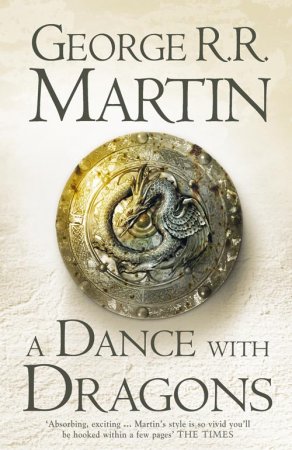 A Dance with Dragons
A Dance with Dragons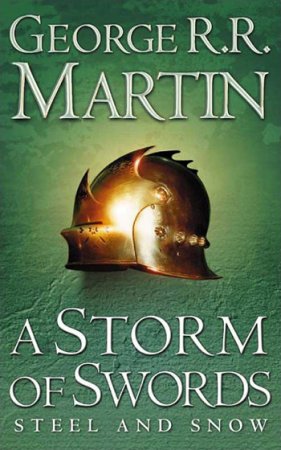 A Storm of Swords
A Storm of Swords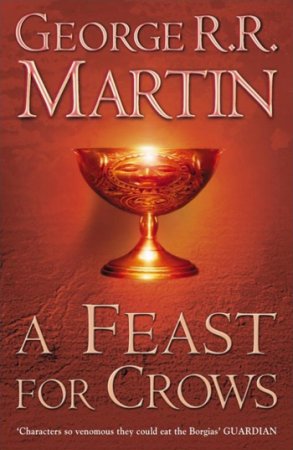 A Feast for Crows
A Feast for Crows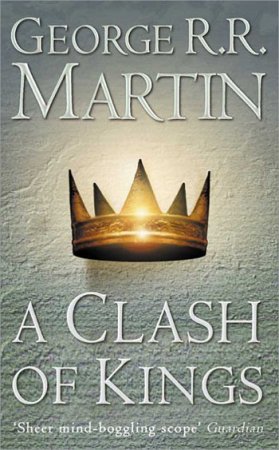 A Clash of Kings
A Clash of Kings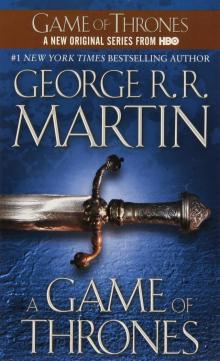 A Game of Thrones
A Game of Thrones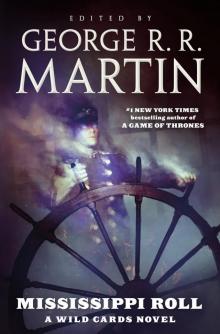 Mississippi Roll
Mississippi Roll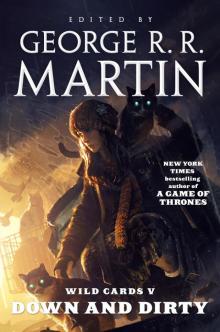 Wild Cards V: Down and Dirty
Wild Cards V: Down and Dirty Busted Flush
Busted Flush When the Devil Drives
When the Devil Drives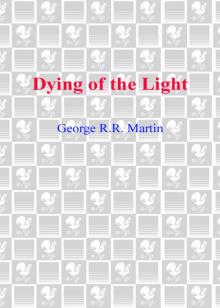 Dying of the Light
Dying of the Light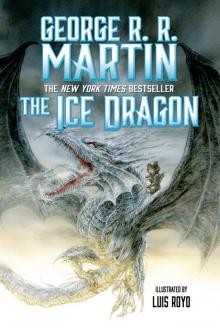 The Ice Dragon
The Ice Dragon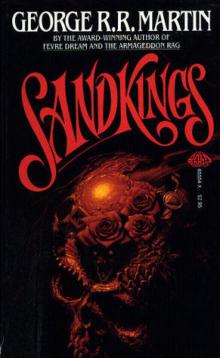 Sandkings
Sandkings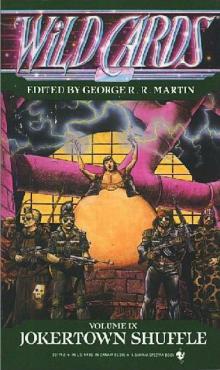 Jokertown Shuffle
Jokertown Shuffle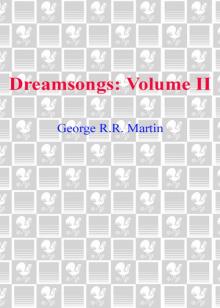 Dreamsongs. Volume II
Dreamsongs. Volume II Deuces Down
Deuces Down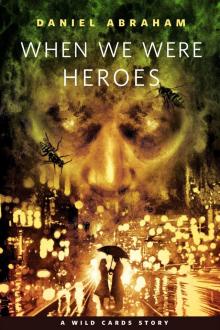 When We Were Heroes
When We Were Heroes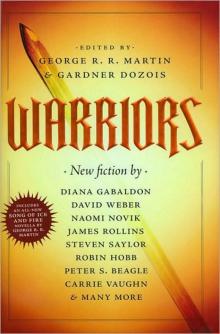 Warriors
Warriors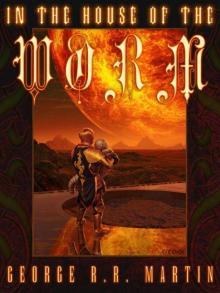 In the House of the Worm
In the House of the Worm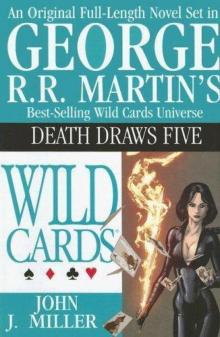 Death Draws Five
Death Draws Five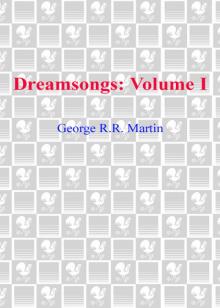 Dreamsongs. Volume I
Dreamsongs. Volume I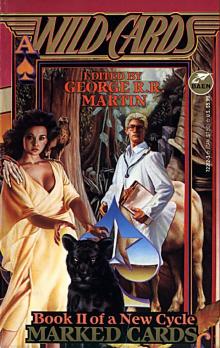 Marked Cards
Marked Cards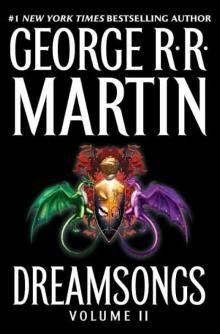 Dreamsongs
Dreamsongs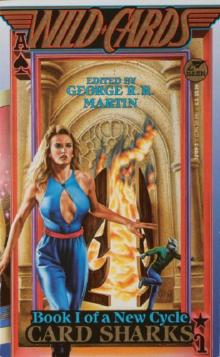 Card Sharks
Card Sharks Dangerous Women
Dangerous Women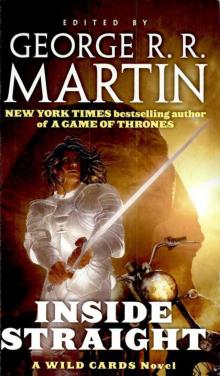 Inside Straight
Inside Straight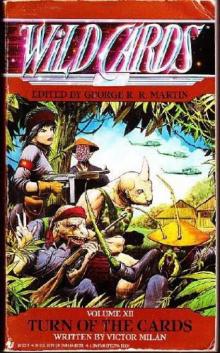 Turn of the Cards
Turn of the Cards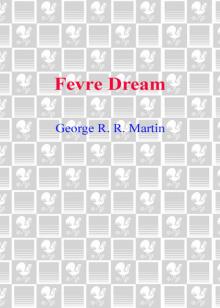 Fevre Dream
Fevre Dream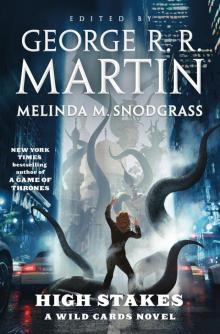 High Stakes: A Wild Cards Novel
High Stakes: A Wild Cards Novel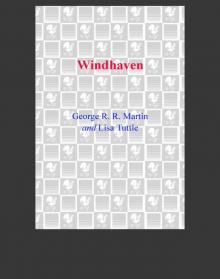 Windhaven
Windhaven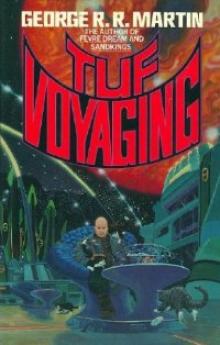 Tuf Voyaging
Tuf Voyaging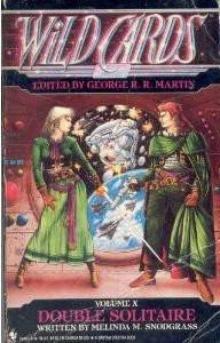 Double Solitaire
Double Solitaire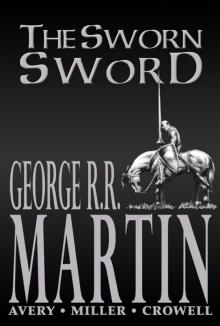 The Sworn Sword
The Sworn Sword Low Chicago
Low Chicago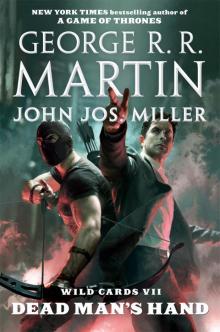 Dead Man's Hand
Dead Man's Hand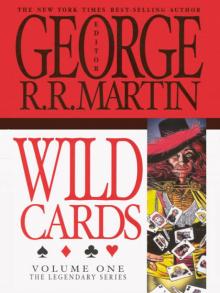 Wild Cards
Wild Cards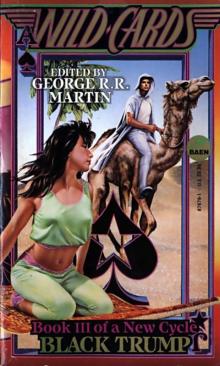 Black Trump
Black Trump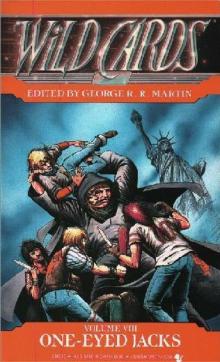 One Eyed Jacks
One Eyed Jacks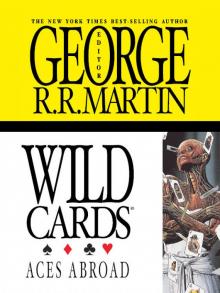 Wild Cards: Aces Abroad
Wild Cards: Aces Abroad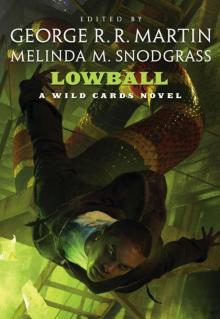 Lowball: A Wild Cards Novel
Lowball: A Wild Cards Novel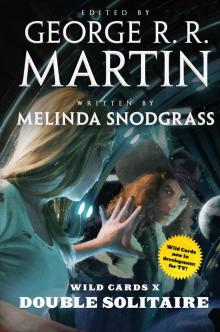 Double Solitaire (2019 Edition)
Double Solitaire (2019 Edition)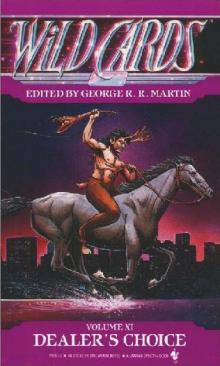 Dealer's Choice
Dealer's Choice Ace in the Hole
Ace in the Hole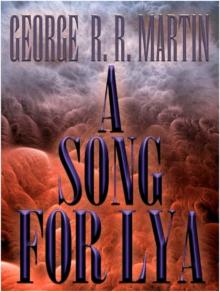 A Song for Lya: And Other Stories
A Song for Lya: And Other Stories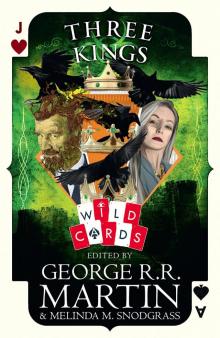 Three Kings
Three Kings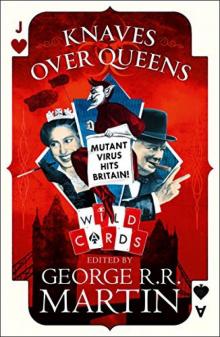 Knaves Over Queens
Knaves Over Queens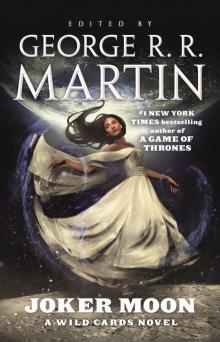 Joker Moon
Joker Moon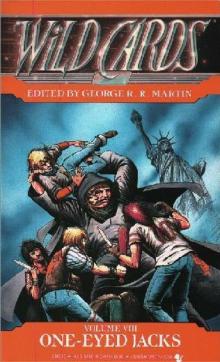 One Eyed Jacks wc-8
One Eyed Jacks wc-8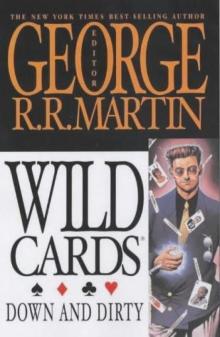 Down And Dirty wc-5
Down And Dirty wc-5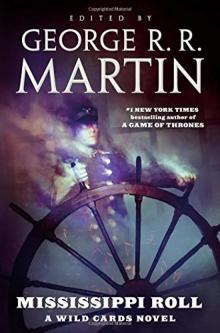 Mississippi Roll_A Wild Cards Novel
Mississippi Roll_A Wild Cards Novel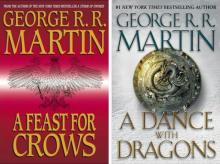 A Feast for Dragons
A Feast for Dragons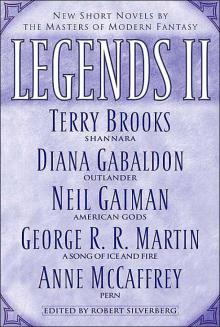 The Sworn Sword ttodae-2
The Sworn Sword ttodae-2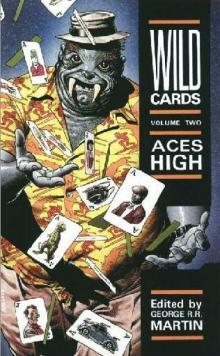 Aces High wc-2
Aces High wc-2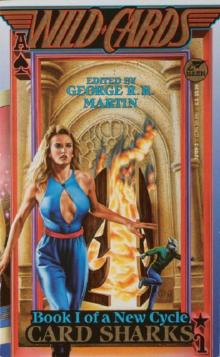 Wild Cards 13 : Card Sharks
Wild Cards 13 : Card Sharks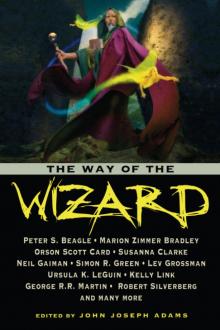 Way of the Wizard
Way of the Wizard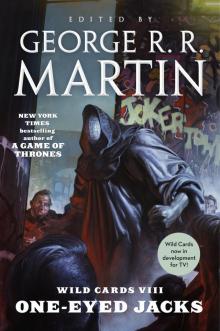 Wild Cards VIII: One-Eyed Jacks
Wild Cards VIII: One-Eyed Jacks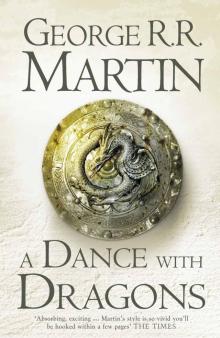 A Dance With Dragons: Book 5 of A Song of Ice and Fire (Song of Ice & Fire 5)
A Dance With Dragons: Book 5 of A Song of Ice and Fire (Song of Ice & Fire 5)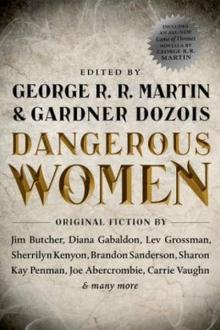 The Princess and The Queen, Or, The Blacks and The Greens (a song of ice and fire)
The Princess and The Queen, Or, The Blacks and The Greens (a song of ice and fire)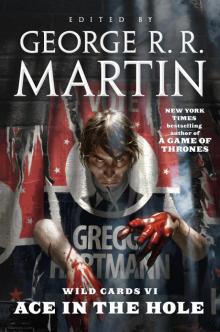 Wild Cards VI--Ace in the Hole
Wild Cards VI--Ace in the Hole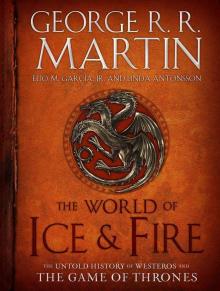 The World of Ice & Fire: The Untold History of Westeros and the Game of Thrones (A Song of Ice and Fire)
The World of Ice & Fire: The Untold History of Westeros and the Game of Thrones (A Song of Ice and Fire)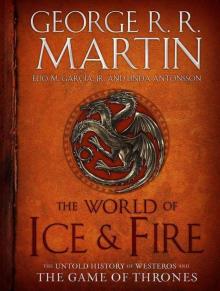 The World of Ice & Fire: The Untold History of Westeros and the Game of Thrones
The World of Ice & Fire: The Untold History of Westeros and the Game of Thrones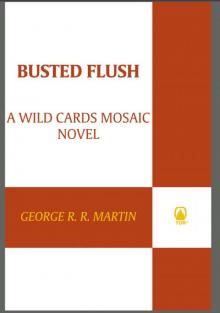 Busted Flush wc-19
Busted Flush wc-19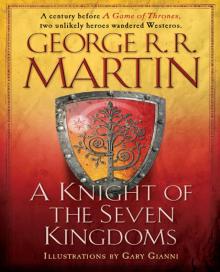 A Knight of the Seven Kingdoms
A Knight of the Seven Kingdoms Nightflyers: The Illustrated Edition
Nightflyers: The Illustrated Edition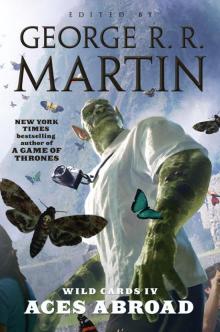 Wild Cards IV
Wild Cards IV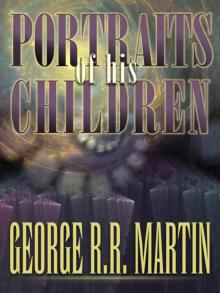 Portraits of His Children
Portraits of His Children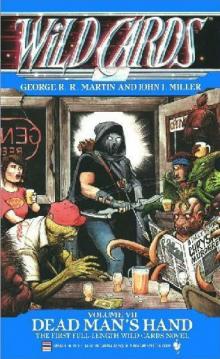 Dead Mans Hand wc-7
Dead Mans Hand wc-7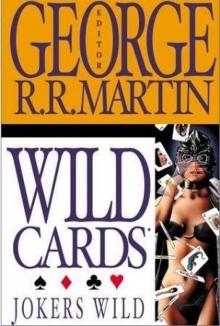 Jokers Wild wc-3
Jokers Wild wc-3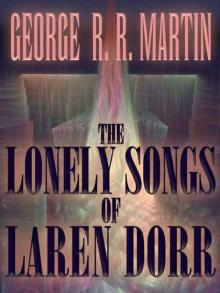 The Lonely Songs of Laren Dorr
The Lonely Songs of Laren Dorr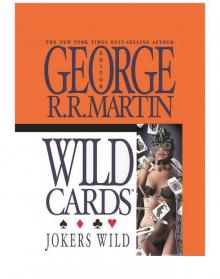 Wild Cards III: Jokers Wild
Wild Cards III: Jokers Wild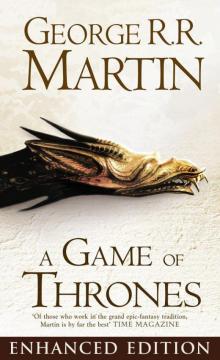 A Game of Thrones Enhanced Edition
A Game of Thrones Enhanced Edition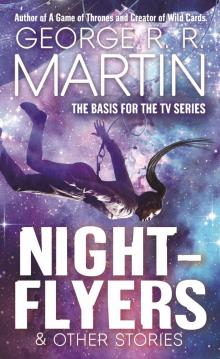 Nightflyers & Other Stories
Nightflyers & Other Stories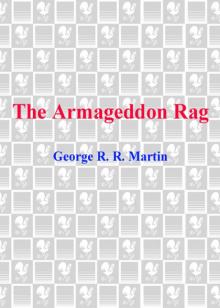 Armageddon Rag
Armageddon Rag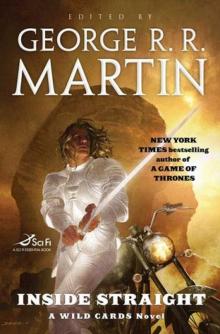 Wild Cards: Inside Straight
Wild Cards: Inside Straight A Song for Lya
A Song for Lya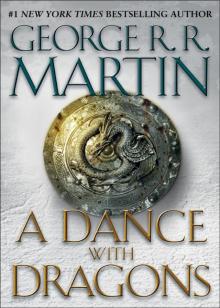 A Dance with Dragons: A Song of Ice and Fire: Book Five
A Dance with Dragons: A Song of Ice and Fire: Book Five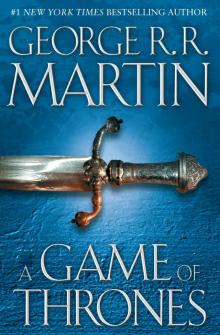 Song of Fire & Ice 01 - A Game of Thrones
Song of Fire & Ice 01 - A Game of Thrones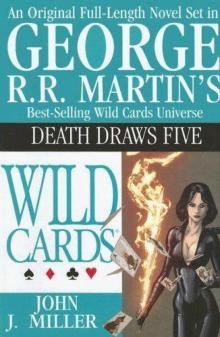 Death Draws Five wc-17
Death Draws Five wc-17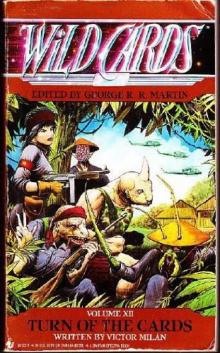 Turn of the Cards w-12
Turn of the Cards w-12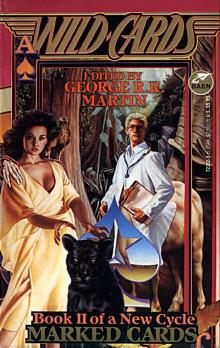 Wild Cards 14 - Marked Cards
Wild Cards 14 - Marked Cards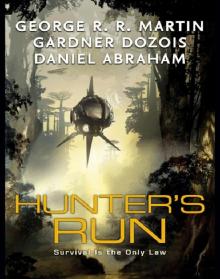 Hunter's Run
Hunter's Run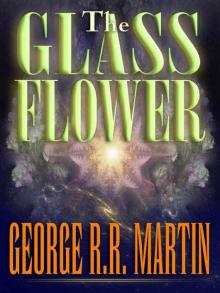 The Glass Flower
The Glass Flower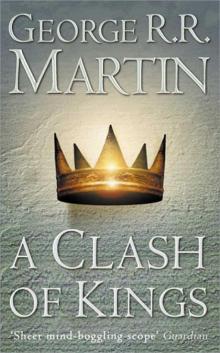 A Clash of Kings asoiaf-2
A Clash of Kings asoiaf-2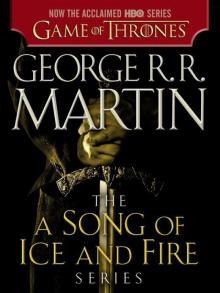 A Game of Thrones 5-Book Bundle: A Song of Ice and Fire Series: A Game of Thrones, A Clash of Kings, A Storm of Swords, A Feast for Crows, and A Dance with Dragons (Song of Ice & Fire)
A Game of Thrones 5-Book Bundle: A Song of Ice and Fire Series: A Game of Thrones, A Clash of Kings, A Storm of Swords, A Feast for Crows, and A Dance with Dragons (Song of Ice & Fire)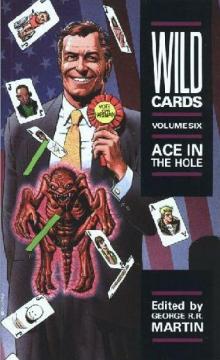 Ace In The Hole wc-6
Ace In The Hole wc-6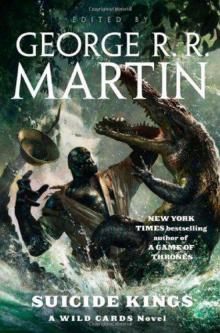 Suicide Kings wc-20
Suicide Kings wc-20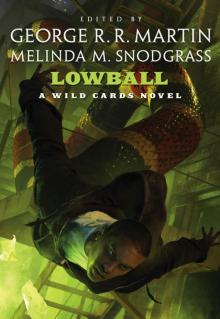 Lowball
Lowball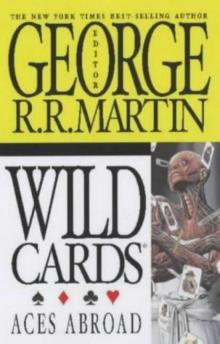 Aces Abroad wc-4
Aces Abroad wc-4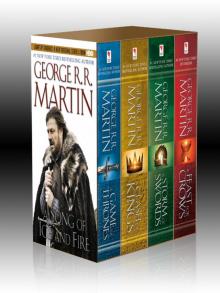 George R. R. Martin's a Game of Thrones 4-Book Bundle
George R. R. Martin's a Game of Thrones 4-Book Bundle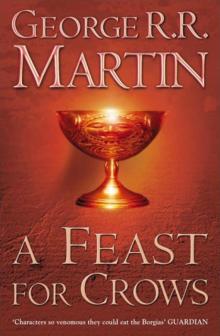 A Feast for Crows asoiaf-4
A Feast for Crows asoiaf-4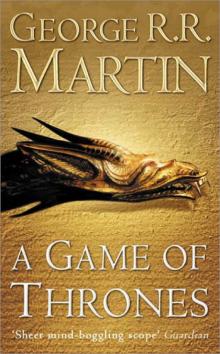 A Game of Thrones asoiaf-1
A Game of Thrones asoiaf-1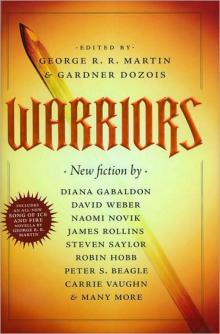 The Mystery Knight ttodae-3
The Mystery Knight ttodae-3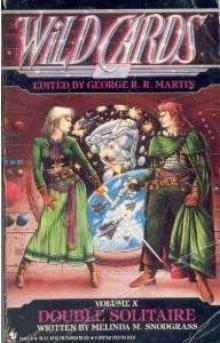 Double Solitaire w-10
Double Solitaire w-10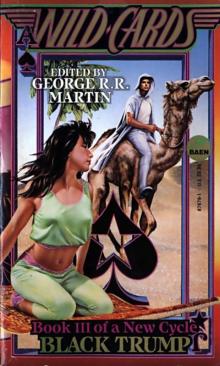 Wild Cards 15 - Black Trump
Wild Cards 15 - Black Trump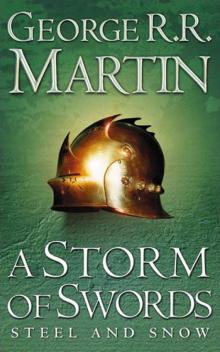 A Storm of Swords asoiaf-3
A Storm of Swords asoiaf-3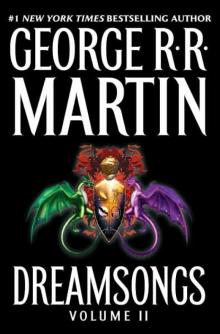 The Hedge Knight ttodae-1
The Hedge Knight ttodae-1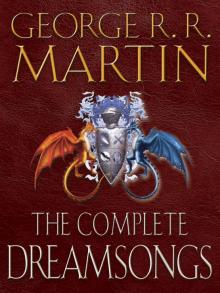 Dreamsongs 2-Book Bundle
Dreamsongs 2-Book Bundle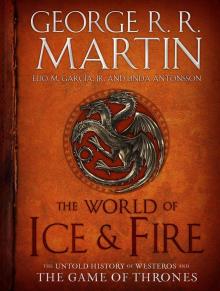 The World of Ice & Fire
The World of Ice & Fire Starlady & Fast-Friend
Starlady & Fast-Friend Old Mars
Old Mars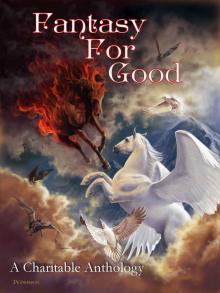 Fantasy For Good: A Charitable Anthology
Fantasy For Good: A Charitable Anthology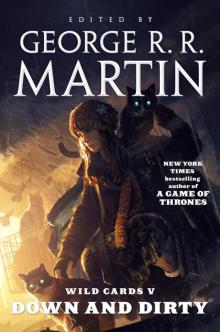 Wild Cards V
Wild Cards V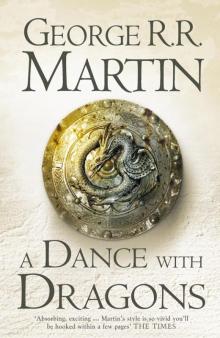 A Dance with Dragons asoiaf-5
A Dance with Dragons asoiaf-5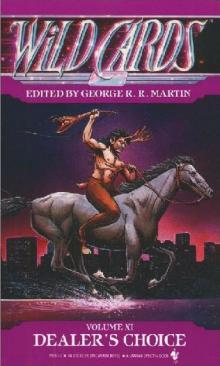 Dealer's Choice w-11
Dealer's Choice w-11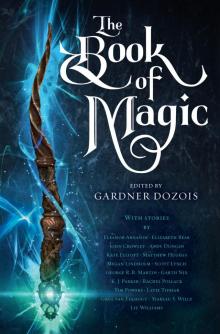 The Book of Magic
The Book of Magic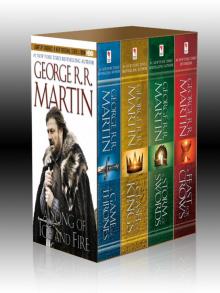 A Game of Thrones 4-Book Bundle
A Game of Thrones 4-Book Bundle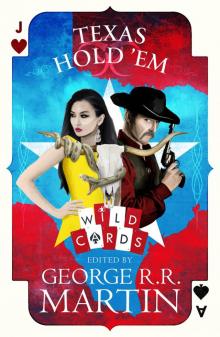 Texas Hold 'Em
Texas Hold 'Em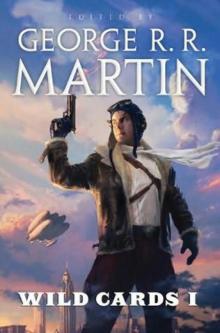 Wildcards wc-1
Wildcards wc-1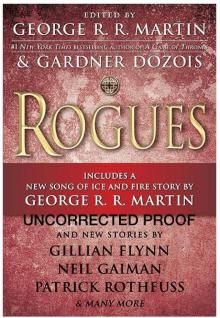 Rogues
Rogues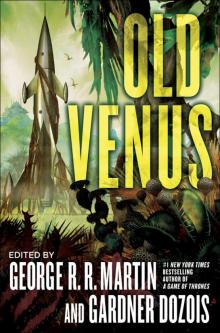 Old Venus
Old Venus